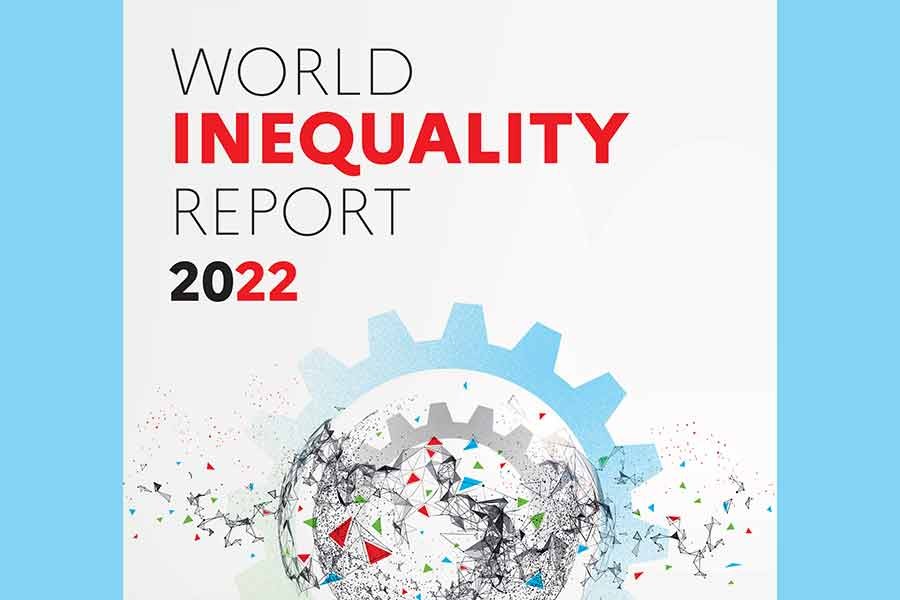The Paris-based World Inequality Lab has published the world inequality report 2022. It shows that the wealth of the world's billionaires has risen by US$4 trillion, while 100 million more people joined the ranks of the extreme poor. And the wealth of the global rich has seen a sharp rise during the 18 months of COVID-19 pandemic. The trend of the rich getting richer at the expense of tens of millions of others who have become poorer is a development of the last quarter century. It is also the time when globalisation is thought to have played its role as the driving force behind wealth creation across the globe. Oddly enough, the rate of extreme poverty had been rather falling for the previous 25 years. Interestingly, the digital revolution in technology has also taken place around the same time. Especially, the internet has created the opportunity for conducting business globally with a speed unheard of in the past. As a consequence, the transfer of wealth from one corner of the globe to another is also taking place in the twinkling of an eye. Small wonder that, as the Forbes Magazine recognises, of the 10 richest people of the world, nine of whom are American, eight own giant tech companies. Notably, the tech giants are creatures of the internet era. The Amazon, for example, was founded in 1994 by Jeff Bezos while a decade later in 2004, Mark Zuckerberg burst on the scene with his social media portal, Facebook. These tech entrepreneurs could become multibillionaires within a very short span of time. They even outpaced their predecessors in the tech arena like Bill Gates of Microsoft or late Steve Jobs of Apple when it comes to the speed of wealth creation. Compared to them, the billionaires of yesteryear such as Warren Buffet look like the tortoise of Aesop's Fables. And since it is in the nature of capital to accumulate, the much-adored information superhighway or the internet only paved the way for wealth to concentrate in a few hands within the shortest possible time. Since capital is nothing but the unpaid portion of the labour put in the creation of wealth by the millions of working people, both green-and-white collar, it is hardly surprising that impoverishment is taking place in inverse proportion to the rise of the richer capitalists. One interesting finding of the World Inequality Report is the rise of the Indian rich. Though still a developing nation, one per cent of the country's population holds 20 per cent of its national income, while the bottom half of the population earns just 13.1 per cent. Consider that 84 million people, that is, around 6.0 per cent of India's population, until May 2021 lived in a condition of extreme poverty. Though the report does not cover Bangladesh, there is no reason to think that the situation here is markedly different from its next-door neighbour. However, what is of especial concern in Bangladesh's case is the accumulation of unearned wealth through corrupt practice like graft. No doubt, businesses are playing their part in wealth creation, but here, too, the power of crony capitalism is more pronounced than business done through free enterprise. In an environment where free enterprise thrives, people at least get jobs in both the trading and manufacturing sectors. But cronyism functions in collusion with the political class through influence peddling that distorts the market mechanism of creation and flow of wealth. As a result, in this system the concentration of wealth takes place faster than in a healthier market-driven condition of earning wealth. That is why, it is not helpful either for the growth of the overall economy or for the working people. But this is the norm in many developing and least developed economies across the globe.
Coming back to the world of billionaires in the North, it has been further observed that Europe is the most equal region with the richest 10 per cent taking 36 per cent of the income share. Compared to that, the Middle East and North Africa have been found to be the most unequal regions on earth. For in both regions, the wealthiest 10 per cent of their populations grabbed 58 per cent of the regions' total income shares. So, Europe should get the credit for achieving some degree of equality in wealth distribution among the region's population. But even this equality appears sham when one compares Europe's wealth with that of Africa, many parts of Asia and South America. Inequity in incomes of the common people of Europe and those regions belies the hollowness of such claims of equalness. However, the inequality of income distribution in the Middle East or in the less developed economies of Africa, Asia or elsewhere is definitely more glaring than in the industrially advanced economies of the North.
However, in the regions under consideration (Middle East, Africa, etc), the digital mode of wealth generation is yet to be the dominant one. But seeing that the world is fast switching to renewable energy to run businesses and industries, the oil economies of the Middle East in particular are also scrambling to change their mode of business from the traditional to the digital and knowledge-based one.
But then how is the world going to address the rising inequality in income distribution globally, regionally and within each individual economy? The question is pertinent to this digital era when wealth can be generated and transferred faster than any time in the past. Globalisation with the help of the internet has definitely brought people closer. But it has also made a few people superrich at the expense of the rest of the world population who have been rendered poorer. While the advancement of technology cannot be stopped, social and political scientists need to think a way out to fight the trend of rising inequality in society.


